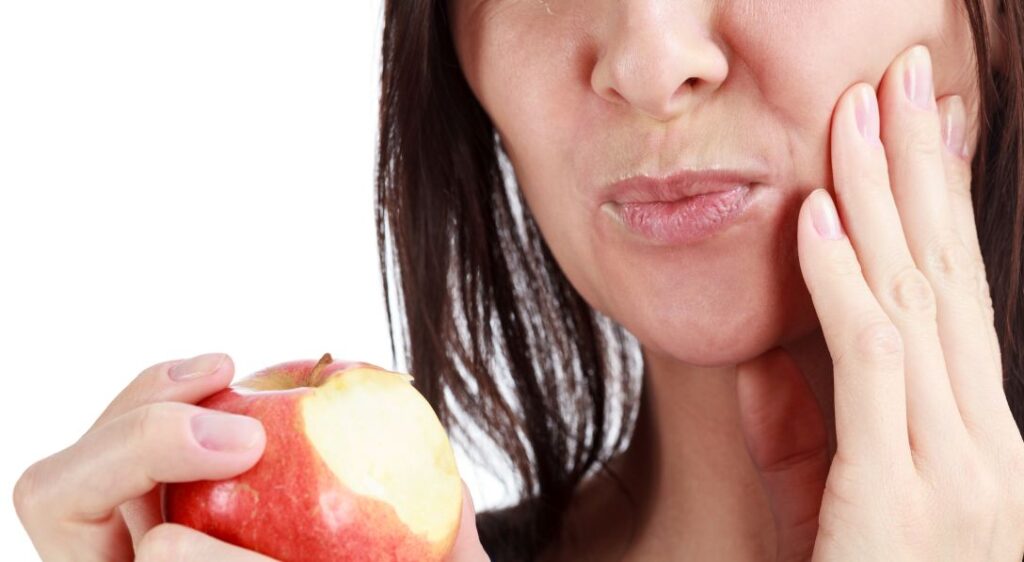
When your jaw aches due to temporomandibular joint (TMJ) disorder, getting treatment from your dentist is essential. But unfortunately, even with treatment, relief may not be immediate. The good news is that while it may not be long before you can finally feel better, there are some things you can do in the meantime to lessen your pain and prevent it from worsening. In that spirit, here are six behaviors you should avoid when you have a TMJ disorder.
Chewing Gum or Hard Foods
Did you know that the temporomandibular joint of your jaw is your most constantly used one in the body? When you chew gum, you are essentially working the joint overtime, and because you are not getting any nutritional benefits from it, the strain it puts on your temporomandibular joint is probably unnecessary. Thus, if you are experiencing any discomfort, stop chewing gum until you’re feeling better.
Furthermore, try to swap out hard foods for something softer. Try steamed vegetables instead of fresh or pureed fruits instead of whole and opt for softer proteins instead of tough cuts or cooking methods.
Resting on Your Chin
Propping your head up by resting your palm on your chin can be very helpful when you’re tired, especially after a long day at your desk. Unfortunately, however, if you have TMJ disorder, this can put pressure on the side of your jaw and onto the temporomandibular joint, potentially moving it out of place. Thus, if you’re feeling tired, try to lean back in your chair, get up and walk around, or go lie down somewhere that doesn’t require you to put pressure on your jaw.
Chewing on One Side
While jaw pain may cause you to avoid chewing on one side of your mouth, the truth is that this does more harm than good. This can put extra pressure on one side of your jaw, worsening strain on the temporomandibular joint and surrounding muscles. Thus, be sure to chew food on all sides equally to avoid upsetting the balance.
Clenching Your Jaw
Known as bruxism, many people clench their jaw or grind their teeth without even realizing they’re doing it. This can of course make it extremely difficult to stop. Unfortunately, however, doing this can lead to a variety of oral health problems, including broken or worn teeth and stiffness in the jaw. Thus, if you find yourself clenching or grinding, speak to your dentist about having a bite guard made to protect your smile from bruxism.
Slouching
While it may seem weird that standing up straight could somehow affect your jaw, the truth is that it works best when your head is positioned above your cervical spine. When you slouch, it can alter how your jaw muscles function and the way your mouth opens and closes. If you are suffering from a TMJ disorder, work on being aware of your posture, or try some posture exercises to help keep your spine straight.
Smoking
In addition to all the dangerous things we know about smoking cigarettes, including the increased risk of diabetes, cancer, and cardiovascular problems, tobacco can also up your risk of gum disease and even temporomandibular joint problems. In fact, studies have shown that smoking tobacco can worsen pain in people with TMJ disorders, because compounds like nicotine can cause muscle tension, increase inflammation, and redirect blood flow, all of which can make it harder to heal.
Remember, while your dentist is here to help protect your smile and get you the relief you deserve from TMJ disorder, avoiding these six behaviors may help improve your comfort and heal faster while you wait.
About Dr. Neil
Dr. Karen Littlefield Neil earned her undergraduate degree at the University of Texas at Arlington and her dental doctorate at the University of Texas Health Science Center at San Antonio. Today, she is a Fellow of the International Academy of Implant Dentistry. She was the past President of the Fort Worth District Dental Society and is also a member of the Licensing Committee for the Texas Dental Association. If you are suffering from a dental emergency, please call Fort Worth Dentistry as soon as possible at 817-738-3368.
